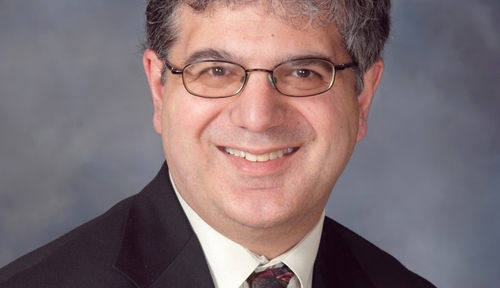A researcher on how the brain ages, Stephen Bonasera, M.D., Ph.D., has been named the 2012 recipient of the Joseph P. Gilmore Distinguished New Investigator Award at the University of Nebraska Medical Center.
Dr. Bonasera is assistant professor, internal medicine department in the division of geriatrics and gerontology.
The award, which recognizes outstanding research contributions by young UNMC faculty members, is named for the late Joseph P. Gilmore, Ph.D., who was professor and chairman of the UNMC Department of Physiology and Biophysics from 1970 to 1987.
Dr. Bonasera joined UNMC in 2008 after serving as an adjunct assistant professor of medicine for the University of California, San Francisco for five years.
He has a bachelor’s degree in electrical engineering from Virginia Polytechnic Institute and State University and a master’s degree in electrical engineering from Georgia Institute of Technology. He earned his medical degree (cum laude) and doctoral degree in neuroscience from Emory University.
Dr. Bonasera’s primary funding comes from a five-year, $3.65 million grant from the National Institute on Aging, one of the institutes that make up the National Institutes of Health.
Under this grant, Dr. Bonasera is studying basic brain mechanisms in mice to determine if they can transfer to humans.
In mice, he said they have determined that changes in gene expression in nerve cells appear to be the major cause that results in reduced ability to perform important daily functions such as eating and walking.
Dr. Bonasera is hoping to determine the precise genes that go awry in mice and lead to these diminished capabilities. Once these genes are identified, he hopes to be able to start screening for comparable genes in humans.
Dr. Bonasera is trying to enroll 90 people as part of his NIH study. He hopes to have 30 people in each of three different age groups – 19 to 35, 36-64 and over age 65. Participants will be given cell phones with a special Global Positioning System (GPS) chip in them.
The phones are carried around by participants for a period of time, ranging from a week to more than two months. The phone can determine the activity level of the individual and if they are not getting out of the house.
If possible health issues are suspected, the research team can intervene and follow up with the patient.
More participants are still being recruited. For more information on the study, contact Jackie Whittington at 402-559-6117.
Through world-class research and patient care, UNMC generates breakthroughs that make life better for people throughout Nebraska and beyond. Its education programs train more health professionals than any other institution in the state. Learn more at unmc.edu.
